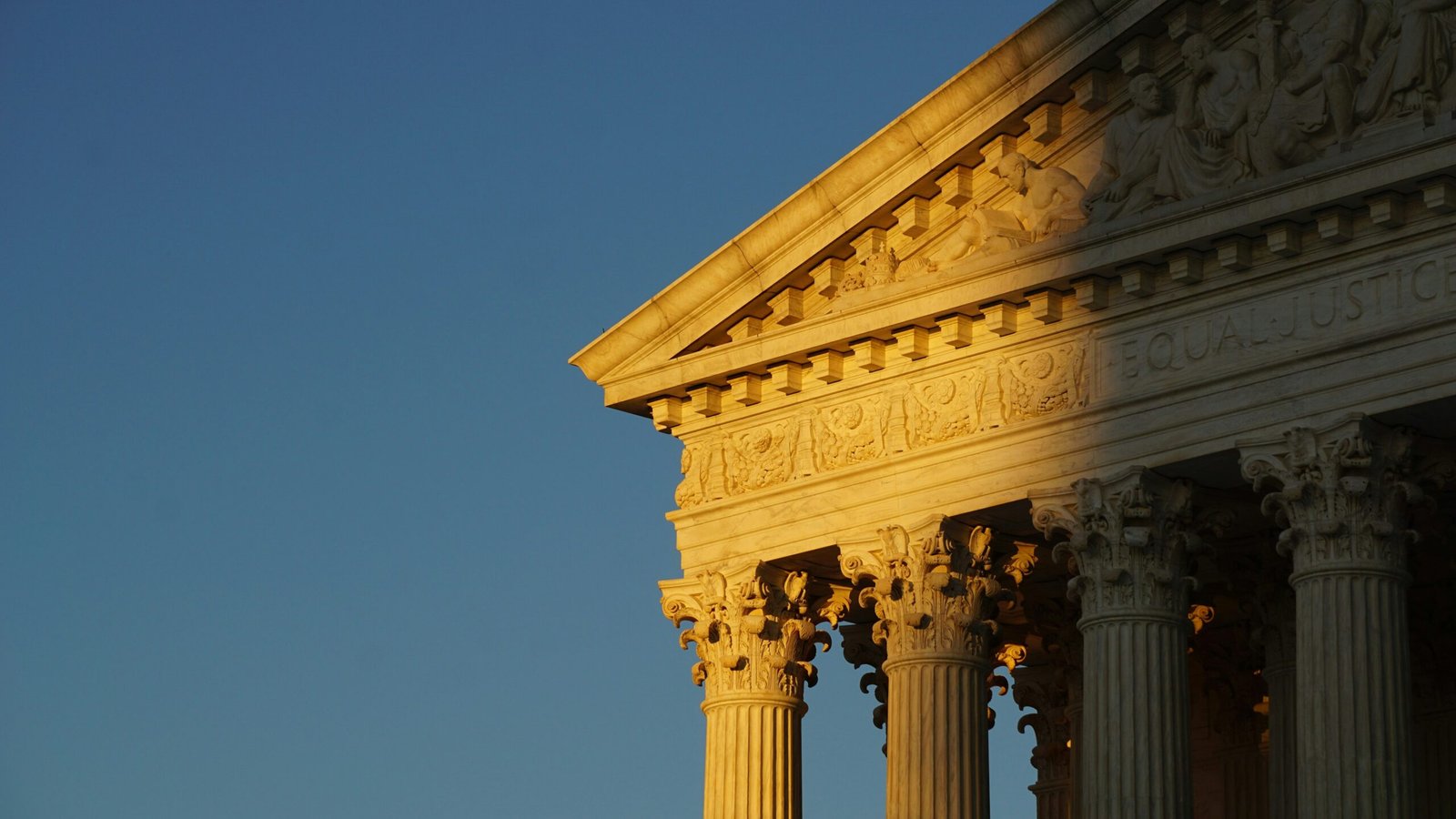
Contents
Overview of the Supreme Court Ruling
The Supreme Court’s recent decision to reject the challenge to the abortion pill mifepristone marks a significant moment in the ongoing legal discourse surrounding reproductive healthcare in the United States. The case, which has garnered widespread attention, was brought before the Court by a coalition of anti-abortion groups who argued that the approval process for mifepristone was flawed and that the drug posed significant risks to women’s health. The key parties involved in this case included the Food and Drug Administration (FDA), the pharmaceutical company Danco Laboratories, and several advocacy groups both for and against abortion rights.
The legal arguments centered on the FDA’s 2000 approval of mifepristone, a drug commonly used in combination with misoprostol to terminate early pregnancies. Opponents claimed that the FDA did not follow the proper procedures and failed to adequately assess the safety and efficacy of the drug. In contrast, proponents highlighted the extensive research and multiple studies validating mifepristone’s safety profile, asserting that the challenge was politically motivated rather than based on scientific evidence.
In a decisive ruling, the Supreme Court upheld the FDA’s approval of mifepristone, effectively maintaining its availability for use in medical abortions. This decision reaffirms the FDA’s regulatory authority and underscores the importance of scientific and medical expertise in the approval process of pharmaceuticals. The ruling has crucial implications for existing abortion laws and precedents, as it reinforces the legal framework that supports access to reproductive healthcare services.
The history of mifepristone’s legal battles is emblematic of the broader contentious landscape of abortion rights in the United States. Since its approval over two decades ago, mifepristone has faced numerous legal challenges and regulatory hurdles. Despite these challenges, it remains a critical component of reproductive healthcare, offering a safe and effective option for women seeking to terminate early pregnancies.
This Supreme Court decision is a pivotal reaffirmation of established abortion rights, and it is likely to influence future legal and political battles in the realm of reproductive healthcare. As such, it is essential to closely monitor the ongoing developments and implications of this ruling within the broader context of reproductive rights and healthcare policy.
Implications for Reproductive Rights and Healthcare
The Supreme Court’s recent decision to reject the challenge to the abortion pill mifepristone holds significant implications for reproductive rights and healthcare. At the core, this ruling safeguards the availability of mifepristone, a critical component of medical abortion, thereby ensuring that women retain access to this essential reproductive health service. This decision can be seen as a reaffirmation of women’s rights to choose, as well as a confirmation of the legal standing of FDA-approved medications.
From a broader perspective, the ruling may set a precedent for future reproductive rights cases and legislation. By upholding the availability of mifepristone, the Supreme Court has indirectly reinforced the importance of access to reproductive healthcare services. This could potentially influence other pending legal battles regarding abortion rights and related healthcare services, signaling a judicial reluctance to overturn established reproductive health protections.
Expert opinions on the ruling are divided. Pro-choice advocates hail the decision as a victory for women’s autonomy and healthcare access. They argue that maintaining the availability of mifepristone is essential for ensuring safe and accessible abortion options, especially in areas where surgical abortions may not be readily available. On the other hand, pro-life advocates express disappointment, viewing the ruling as a setback in their efforts to restrict abortion access. They contend that the availability of mifepristone undermines their objective to limit abortions and protect fetal life.
The ruling also has implications for healthcare providers and the overall healthcare system. By upholding the status of mifepristone, the Court has alleviated potential logistical and legal challenges for healthcare providers who offer medical abortions. This ensures that healthcare providers can continue to deliver comprehensive reproductive health services without the looming threat of legal repercussions.
In summary, the Supreme Court’s decision to reject the challenge to mifepristone has far-reaching implications for reproductive rights and healthcare. It reinforces the legal standing of reproductive health medications, potentially influences future reproductive rights cases, and impacts both pro-choice and pro-life advocacy efforts. As the legal landscape continues to evolve, this ruling stands as a pivotal moment in the ongoing discourse surrounding reproductive rights and healthcare access.
Public and Political Reactions
The Supreme Court’s recent ruling rejecting the challenge to the abortion pill Mifepristone has sparked a wide range of public and political reactions. Key political figures from both sides of the aisle have expressed their views, reflecting the polarized nature of the abortion debate. Prominent Democratic leaders, including President Joe Biden and Speaker Nancy Pelosi, have lauded the decision as a victory for reproductive rights. President Biden remarked that the ruling underscores the importance of protecting women’s access to healthcare services, while Speaker Pelosi emphasized the need to safeguard such rights against future challenges.
Conversely, Republican leaders have voiced their disapproval, framing the decision as a setback for the pro-life movement. Senator Mitch McConnell and Representative Kevin McCarthy have both issued statements condemning the ruling, arguing that it undermines efforts to protect unborn lives. The ruling has also galvanized advocacy groups on both sides. Organizations such as Planned Parenthood and the ACLU have celebrated the decision, while groups like the National Right to Life Committee and Susan B. Anthony List have vowed to continue their fight against abortion.
Public opinion polls reveal a nation divided on the issue. Surveys conducted by reputable polling organizations indicate that while a majority of Americans support access to abortion services, a significant portion remains opposed. This division is likely to influence upcoming elections, with candidates from both parties expected to highlight their stance on the ruling to mobilize their respective bases. Political analysts suggest that the ruling could become a pivotal issue in the 2024 elections, potentially swaying voter turnout and campaign strategies.
Media coverage has played a crucial role in shaping public perception of the ruling. Major news outlets have provided extensive coverage, often with a particular slant that reflects their editorial stance on abortion. This has contributed to the formation of echo chambers, where individuals are exposed primarily to viewpoints that align with their own. The varied media narratives underscore the complexity of public discourse surrounding the Supreme Court’s decision on Mifepristone.
Future Legal and Policy Considerations
The recent Supreme Court decision rejecting the challenge to the abortion pill mifepristone marks a pivotal moment in the ongoing debate over reproductive rights in the United States. However, this ruling is unlikely to be the final word on the matter. Looking ahead, several legal and policy considerations are poised to shape the future landscape of mifepristone access and abortion rights more broadly.
First, potential legal challenges to this decision may emerge from various advocacy groups. These groups might seek to bring new cases that challenge the safety, distribution, or approval process of mifepristone, aiming to create legal precedents that could either undermine or bolster access to the drug. Legal strategies could include questioning regulatory procedures or introducing new data to argue for a reevaluation of mifepristone’s approval by the Food and Drug Administration (FDA).
On the legislative front, both state and federal governments are likely to play significant roles. At the state level, legislation could emerge that either restricts or expands access to mifepristone. States with restrictive abortion policies may introduce laws aiming to limit the distribution and use of mifepristone, potentially requiring additional medical oversight or imposing stringent regulatory barriers. Conversely, states supportive of abortion rights might enact laws to safeguard access, ensuring that mifepristone remains readily available and protecting healthcare providers from legal repercussions.
At the federal level, Congress may consider bills that either seek to codify protections for mifepristone or impose new restrictions. Legislative actions could range from attempts to enshrine the right to medication abortion in federal law to efforts aimed at restricting the FDA’s ability to approve or regulate such medications. The balance of power in Congress will greatly influence the direction and success of these legislative efforts.
Finally, the judiciary will continue to be a critical arena for the battle over reproductive rights. Future court cases, whether at the state or federal level, will likely challenge or defend the legality and accessibility of mifepristone. The composition of the courts, particularly the Supreme Court, will play a decisive role in shaping the legal framework governing reproductive health. As new cases arise, judicial interpretations will either reinforce or erode the current protections for medication abortion, significantly impacting the future of reproductive rights in the United States.
OUR SITE: toinewsalert.com





